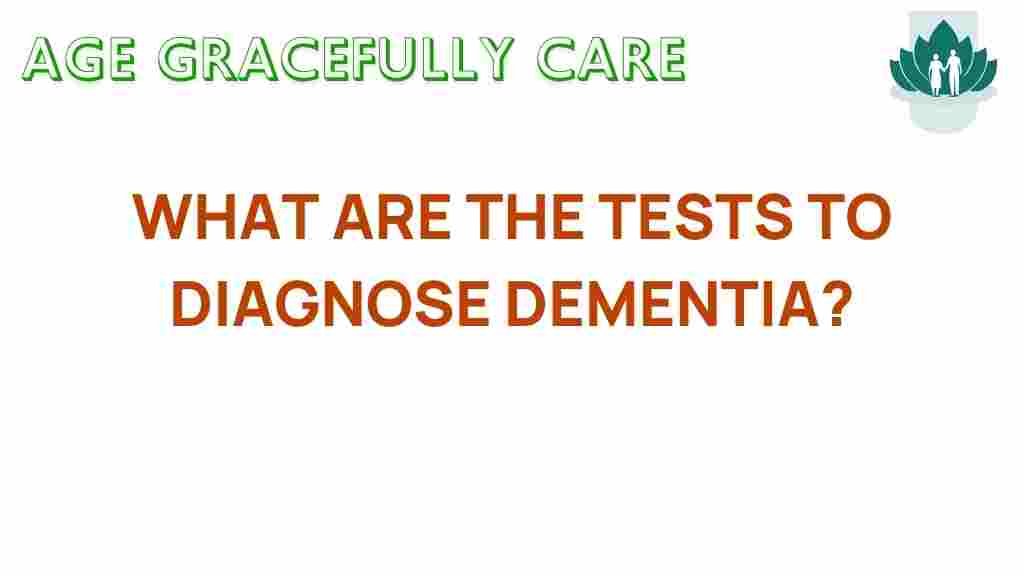dementia tests: Understanding the Path to Diagnosis
Dementia is a broad term encompassing various conditions that lead to a decline in cognitive function, significantly impacting daily life. As the population ages, the prevalence of dementia, particularly Alzheimer’s disease, is on the rise. Early detection is crucial for effective management and planning. This article unravels the mystery surrounding dementia tests, focusing on the diagnostic process, types of assessments, and the importance of mental health in understanding dementia.
What is Dementia?
Dementia is not a specific disease but a general term that describes a range of symptoms associated with a decline in cognitive function. These symptoms can include:
- Memory loss
- Difficulty communicating
- Difficulty with reasoning and problem-solving
- Changes in mood or behavior
Alzheimer’s disease is the most common form of dementia, accounting for approximately 60-80% of cases. Understanding the various forms of dementia is essential for determining the appropriate dementia tests.
Why Early Detection Matters
Early detection of dementia allows for:
- Better planning for the future
- Opportunities for clinical trials and new treatments
- Access to support services
Recognizing the early signs of cognitive decline can lead to timely interventions that may slow progression and improve quality of life.
Types of Dementia Tests and Assessments
Diagnosing dementia involves a comprehensive approach that includes a variety of dementia tests. These tests can be broadly categorized into cognitive assessments, neurological evaluations, medical imaging, and laboratory tests.
Cognitive Assessment
Cognitive assessments are standardized tests designed to evaluate memory, problem-solving skills, attention, and language abilities. Common cognitive tests include:
- Mini-Mental State Examination (MMSE): A brief 30-point questionnaire that assesses various cognitive functions.
- Montreal Cognitive Assessment (MoCA): A one-page test that evaluates multiple cognitive domains, including memory and executive function.
- Clock Drawing Test: Patients are asked to draw a clock to assess cognitive function and executive planning.
These assessments help healthcare professionals gauge the severity of cognitive impairment and track changes over time.
Neurological Evaluation
A neurological evaluation is a critical component in diagnosing dementia. During this evaluation, a doctor will:
- Review medical history
- Conduct a physical examination
- Assess reflexes and motor skills
This evaluation helps rule out other neurological conditions that may mimic dementia symptoms.
Medical Imaging
Medical imaging plays a vital role in diagnosing dementia and is often used to visualize the brain’s structure. Common imaging techniques include:
- Magnetic Resonance Imaging (MRI): Provides detailed images of the brain and can identify changes associated with Alzheimer’s and other dementias.
- Computed Tomography (CT) Scan: Helps to detect strokes or tumors affecting cognitive function.
- Positron Emission Tomography (PET) Scan: Assesses brain activity and can identify amyloid plaques characteristic of Alzheimer’s disease.
These imaging techniques assist in confirming a diagnosis and understanding the underlying causes of cognitive decline.
Laboratory Tests
While there is no single laboratory test that confirms dementia, healthcare providers may order tests to rule out other causes of cognitive impairment, such as:
- Thyroid function tests
- Vitamin B12 levels
- Electrolyte levels
- Infections
These tests can help identify reversible causes of memory loss and cognitive decline.
The Diagnostic Process: Step-by-Step
Understanding the process of diagnosing dementia can alleviate concerns and provide clarity for patients and their families. Here’s a step-by-step guide to the diagnostic process:
Step 1: Initial Consultation
The first step is scheduling an appointment with a healthcare provider. During this consultation, the provider will:
- Gather a detailed medical history.
- Discuss symptoms and changes in cognitive function.
- Ask about family history of dementia.
Step 2: Cognitive Testing
After the initial consultation, the provider may recommend a cognitive assessment using standardized tests. These tests can help quantify the degree of cognitive impairment.
Step 3: Neurological Examination
A neurological evaluation will follow to assess the patient’s overall neurological health and identify any other potential causes of cognitive symptoms.
Step 4: Medical Imaging
If necessary, imaging studies like MRI or CT scans may be ordered to visualize brain changes and rule out other conditions.
Step 5: Laboratory Tests
Laboratory tests may be performed to check for underlying medical issues that could be contributing to cognitive decline.
Step 6: Diagnosis
After completing all assessments, the healthcare provider will analyze the results. If dementia is diagnosed, the provider will discuss treatment options and next steps.
Troubleshooting Common Concerns
Many individuals and families have concerns during the diagnostic process. Here are some common issues and tips for addressing them:
Concern 1: Fear of Diagnosis
It’s natural to fear the possibility of a dementia diagnosis. Open communication with healthcare providers can help alleviate fears and provide clarity on the process.
Concern 2: Understanding the Tests
Many dementia tests may seem overwhelming. Don’t hesitate to ask your provider to explain the purpose of each test and what the results may indicate.
Concern 3: Privacy and Confidentiality
Protecting mental health and personal information is vital. Ensure that your healthcare provider follows strict confidentiality protocols and is compliant with HIPAA regulations.
Conclusion: The Importance of Early Detection
Diagnosing dementia can be a complex and emotional journey for patients and their families. However, understanding the various dementia tests available—such as cognitive assessments, neurological evaluations, medical imaging, and laboratory tests—can empower you to pursue early detection and effective management.
Remember, early intervention can significantly enhance the quality of life for individuals with dementia and their caregivers. If you notice signs of memory loss or cognitive decline, don’t hesitate to seek help. For more information on mental health resources, you can visit this link.
In summary, navigating the world of dementia tests is essential for a proper diagnosis and intervention. If you have concerns about cognitive health, consider reaching out to a healthcare provider to discuss your symptoms and undergo a comprehensive evaluation.
This article is in the category Health and created by AgeGracefullyCare Team
